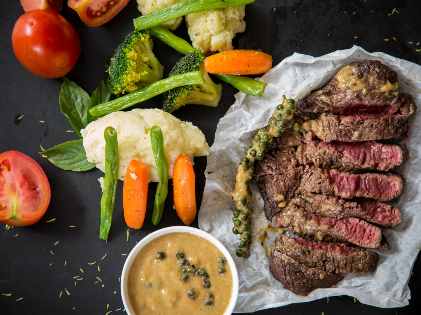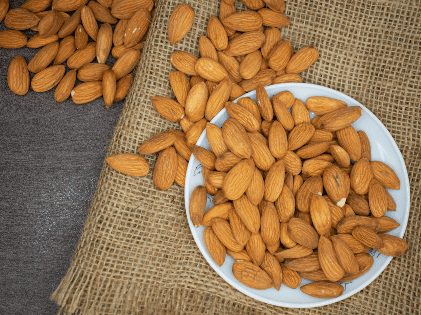
Protein As A Nutrient: Here’s Why You Should Watch Your Daily Protein Intake

 Our body’s need for the nutrient is explicitly suggested by the appetite for protein-rich foods. Whether you have set yourself a target to shed five pounds or gain five, proteins in all diets are constant. Protein contains nine different kinds of essential amino acids that are integral to the everyday diet.
Our body’s need for the nutrient is explicitly suggested by the appetite for protein-rich foods. Whether you have set yourself a target to shed five pounds or gain five, proteins in all diets are constant. Protein contains nine different kinds of essential amino acids that are integral to the everyday diet.
Medically speaking, protein components are the most necessary of all energy-supplying and tissue-building components a body needs for healthy sustenance and growth. Whether you like your dollop of protein served as a piece of meat or a chunk of tofu, regular intake of protein is of unavoidable importance to biological development and repair processes.
What Is Protein As A Nutrient?
Protein is a compound that makes one of the key constituents of all living cells, animals and plants included. It comprises of amino acids and polymers, both of which are medically proven to cause growth and restoration of tissues. So, technically, they are one among the few building blocks of tissues in the body, in a way their fuel source.
Each gram of protein contains 4 Kcal, the constituent being identical to carbohydrate. The greatest nutritional value of protein is its amino acids that link with each other to form polymer chains that proteins are. The constituting types of amino acids in a protein molecule are phenylalanine, threonine, valine, methionine, tryptophan, leucine, lysine, isoleucine, and histidine.
How Does Protein Work?
 The peptide bonded amino acids are broken down by stomach fluids during digestion, into polypeptide chains. The chief component causing the breakdown is hydrochloric acid, coupled with the protease actions. The proteins are dissembled by the dietary enzymes at a rapid pace that ends with quicker development. The acids synthesize before getting biosynthesized on absorption. Protein is a necessary nutrient for all our organs, skin, muscles, hairs, bones, nails and much more. Even certain hormones require protein for normal functioning. The 9 amino acids present in protein are the essential kinds without which the body will suffer deficiency syndromes.
The peptide bonded amino acids are broken down by stomach fluids during digestion, into polypeptide chains. The chief component causing the breakdown is hydrochloric acid, coupled with the protease actions. The proteins are dissembled by the dietary enzymes at a rapid pace that ends with quicker development. The acids synthesize before getting biosynthesized on absorption. Protein is a necessary nutrient for all our organs, skin, muscles, hairs, bones, nails and much more. Even certain hormones require protein for normal functioning. The 9 amino acids present in protein are the essential kinds without which the body will suffer deficiency syndromes.
When a person with considerable athletic activities in his routine takes protein foods, the amino acids released from the product give the muscles a faster growth even though exercises keep them exhausted, taking longer to recover. Protein is also of great value in improving the immunity level. However, unlike natural proteins, muscle-building proteins are prepared to kill food cravings by reducing their metabolic rate. This helps them stay full for an extended time period while optimizing the body’s ability to strike off foreign bodies with a bounce. Subsequently, new fibers grow quickly giving the body mass a wider and thicker appearance.
Functions Of Protein
 Proteins serve the body in ways more than one or two. The component has multifarious effects on overall health. It generates anti-bodies that overlap foreign bodies keeping the body immunized and creates enzymes that perform the critical work on reading genetic information that is needed in the DNA.
Proteins serve the body in ways more than one or two. The component has multifarious effects on overall health. It generates anti-bodies that overlap foreign bodies keeping the body immunized and creates enzymes that perform the critical work on reading genetic information that is needed in the DNA.
Messenger proteins coordinate biological processes by transmitting signals from the donor to the recipient cell, tissue, or organ in the body. In general, protein adds structure to the cells, and from a broader viewpoint, gives the body the mobility it needs. The proteins act as binders, holding smaller molecules into a cellular structure. A sufficient amount of protein intake is necessary to keep up the gastrointestinal health.
Aside from the mentioned functions, proteins have other health benefits medically recognized as important to keep the body in good shape and perfect condition. It takes a minimum level of intake to ensure that the consumed protein performs all the said functions effectively.
How Much Protein Intake Is Necessary?
An athlete or a person with heavy physical activity requires a more-than-average protein intake for optimal performance. A normal person with limited physical activity, however, needs to have at least 0.8 gm of protein for every Kilogram of their body’s weight. However, the requirement varies depending on a number of factors such as individual needs, age, gender, everyday routine, etc.
Your protein intake should be decided on whether you wish to lose weight or gain. For high-fat choices, try regular lean or ground beef and chicken with skin. To add full-protein foods in your diet, choose from seafood like sardines, salmon, trout, anchovies, mackerels, and oysters. Some processed meats have sodium in them, intake of which at a high level can be detrimental to your health. Sausage, salami, ham, frankfurters, deli meats, and luncheon are some of them. Sometimes, fresh pork, turkey, and chicken are enhanced with salty solutions. Check the packet label before picking them from the shelf.

You must be logged in to post a comment Login